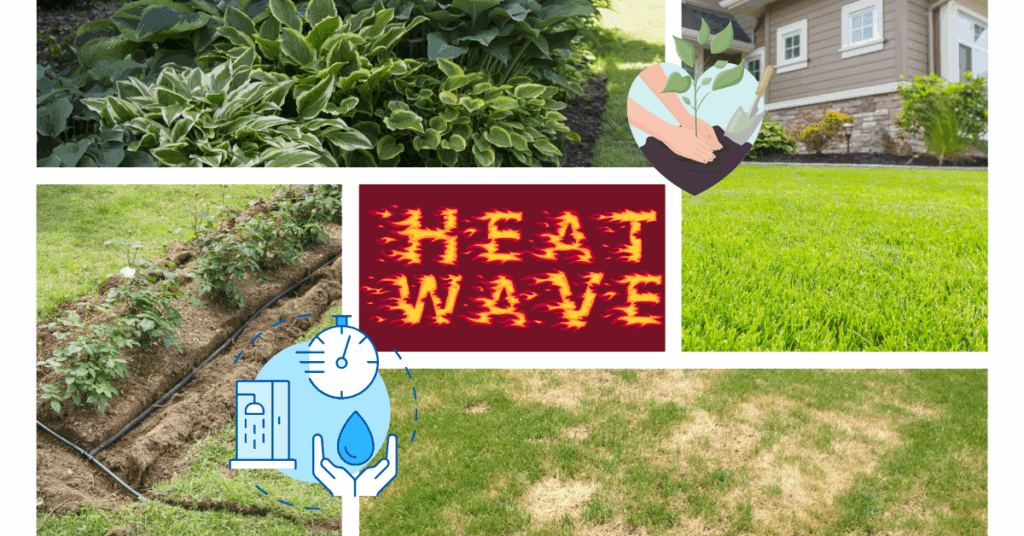Protect Your Landscape in Excessive Heat
As the summer sun intensifies over the next few days and into the summer, we wanted to share information on how to keep your plants and landscape safe. For homeowners, ensuring your plants and lawn remain safe during periods of excessive heat is important. Egan Landscape Group is here to provide essential tips and precautions to keep your outdoor spaces thriving, even when temperatures soar.
Keeping Your Plants Safe
Extreme heat can stress and damage your plants. Here’s how to protect them:
-
Provide Shade: For delicate plants, consider temporary shade cloths or strategically placed umbrellas during the hottest parts of the day. Moving plants in containers to a different side of the house may also provide temporary shade for them!
-
Deep Watering: Instead of frequent shallow watering, water deeply and less often. This encourages roots to grow deeper, making plants more resilient to heat. If you have a drip irrigation system installed, you’re already one step ahead. If you don’t have a drip irrigation system installed, let us know! We’d love to come out and talk to you about installing one.
-
Monitor for Stress: Yes, plants get stressed too! Look for signs of heat stress such as wilting, yellowing leaves, or stunted growth. Address these issues as soon as possible to prevent any of your plants drying out.
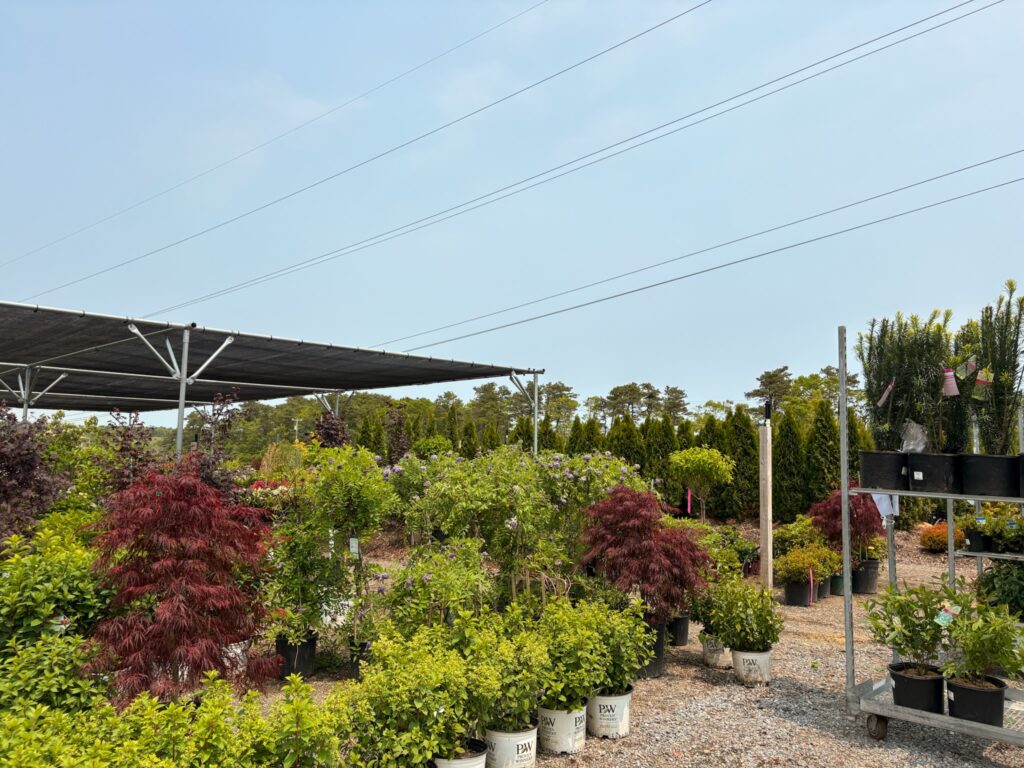
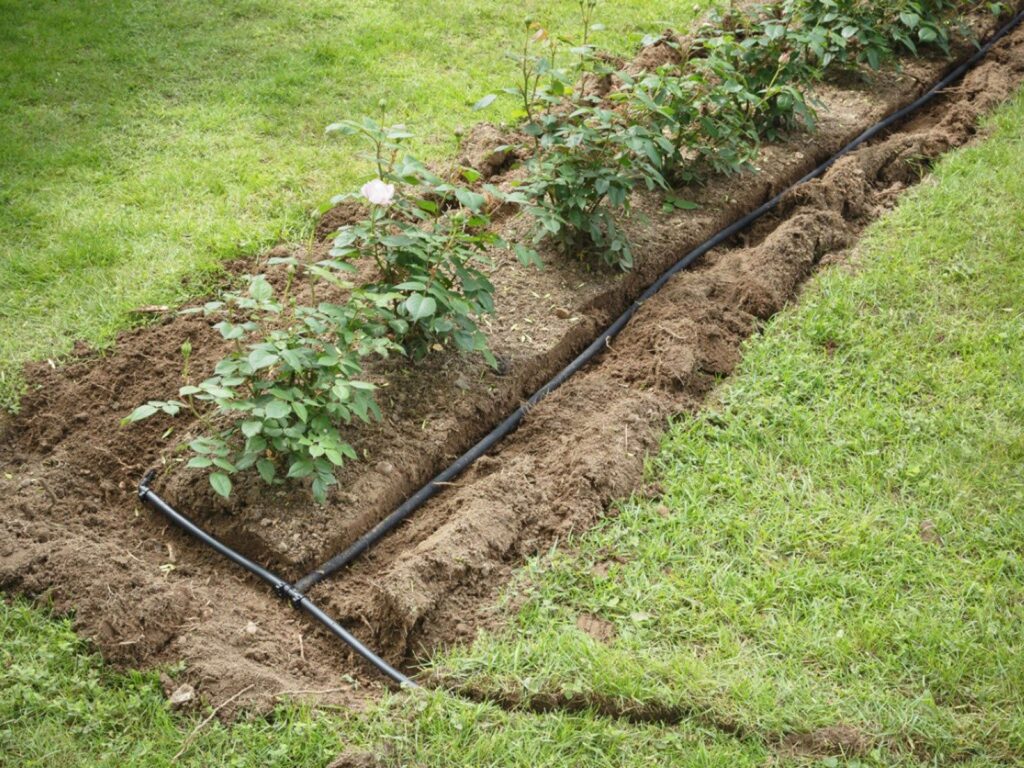
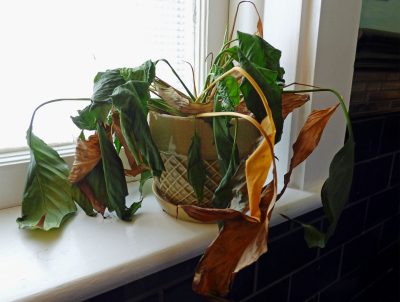
Watering Tips for Your Lawn
A lush green lawn can quickly turn brown under excessive heat without proper care. Dead grass in the sun also creates an opportunity for a fire to start in extreme cases. Paying attention to the temperature and sun exposure of your lawn throughout the day is key, but so is taking a few preemptive measures:
- Water Early in the Morning: The best time to water your lawn is between 4 AM and 9 AM. This minimizes water loss due to evaporation and allows the grass to absorb the water before the heat sets in. While you have your morning coffee, make sure the lawn gets some too!
- Avoid Midday Watering: Watering during the hottest part of the day leads to significant water evaporation, making it inefficient.
- Check Soil Moisture: Don’t just water on a schedule. Stick a screwdriver or a soil probe into the ground. If it goes in easily to a depth of 6-8 inches, your lawn likely has enough moisture. If you don’t have a screwdriver or a probe, feel free to use a popsicle stick. You get a sweet treat AND a way to check the moisture of your lawn!
- Adjust Sprinkler Settings: Ensure your sprinklers are covering your entire lawn evenly and not watering sidewalks or driveways.
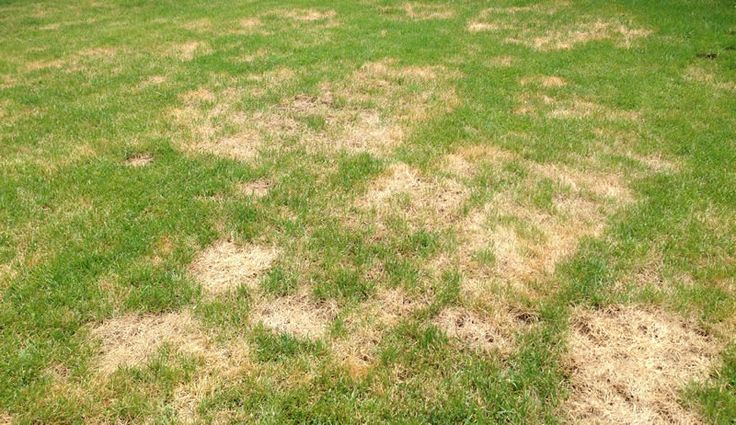
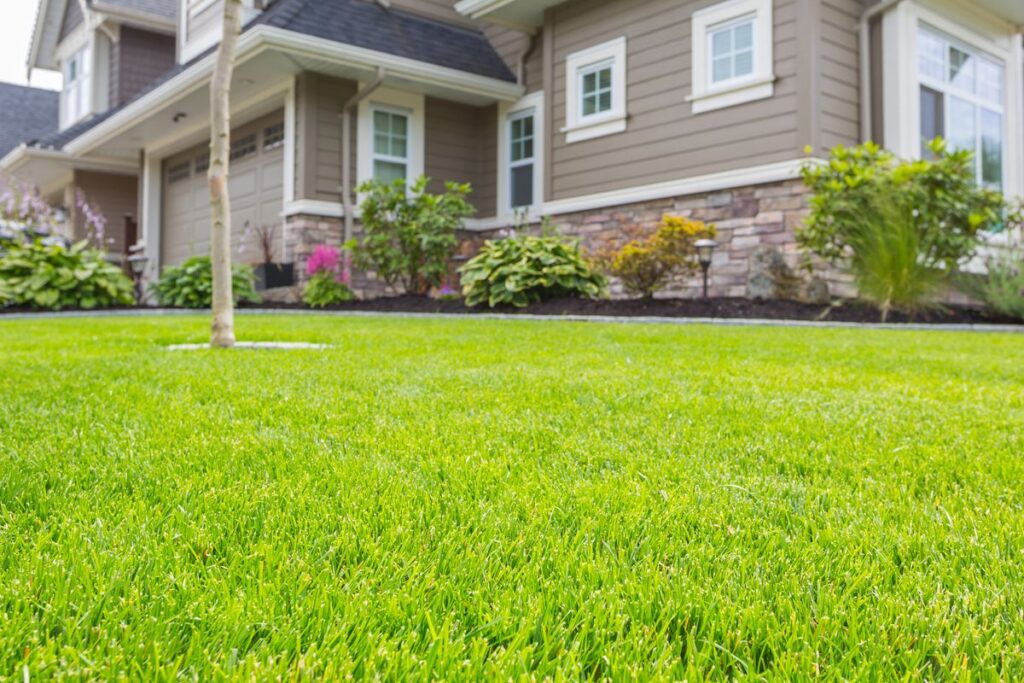
Why Water the Mulch?
Mulch is a landscaper’s best friend, especially during hot weather. Mulch beds also attract and absorb the sun’s UV rays and heat. Dry conditions, high temperatures, and high winds can also contribute to the risk of small mulch fires. Keep your yard safe by watering the mulch every so often. Watering your mulch offers several benefits:
- Reduces Evaporation: A layer of wet mulch acts as a barrier, preventing precious soil moisture from evaporating quickly under the sun’s rays.
- Regulates Soil Temperature: Mulch helps to keep the soil beneath it cooler, protecting plant roots from extreme heat fluctuations.
- Suppresses Weeds: Wet mulch is more effective at smothering weeds, which compete with your plants for water and nutrients.
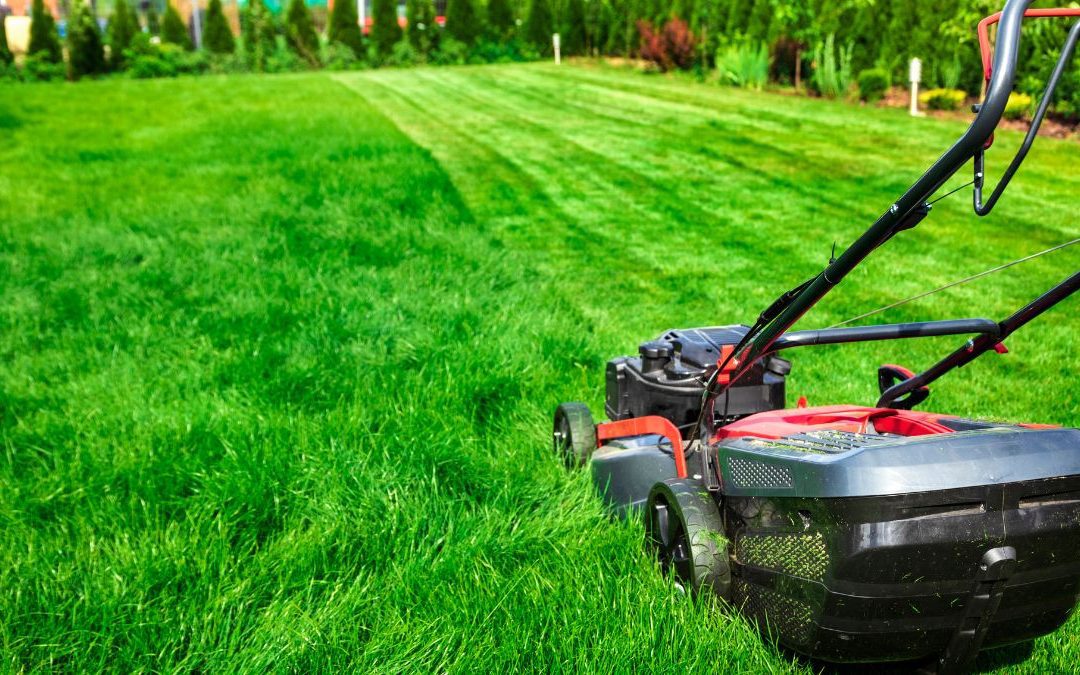
Precautions for Trimming the Grass
Mowing your lawn incorrectly during a heatwave can do more harm than good. If you aren’t having us take care of your yard for you (which you totally should by the way) here are some tips to help keep your grass green!
- Raise Your Mower Blade: During hot periods, set your mower to its highest setting. Taller grass provides more shade to the soil, reducing moisture loss and protecting the roots.
- Mow Less Frequently: Reduce the frequency of mowing. Let your lawn grow a bit longer than usual to conserve energy and moisture.
- Avoid Mowing During Peak Heat: Just like watering, avoid mowing your lawn in the middle of the day when temperatures are highest. The stress of mowing combined with heat can be detrimental to your grass.
- Sharp Blades are Crucial: Ensure your mower blades are sharp. Dull blades tear the grass, leaving ragged edges that are more susceptible to disease and heat stress.
By following these guidelines, you can help your plants and lawn not only survive, but thrive during periods of excessive heat. A little extra care now will ensure your landscape remains a source of beauty and enjoyment throughout the summer.

